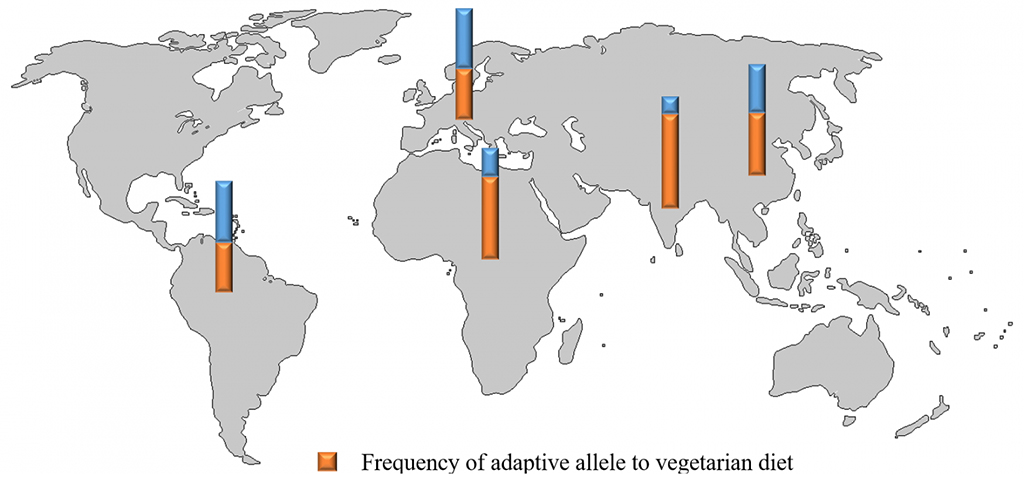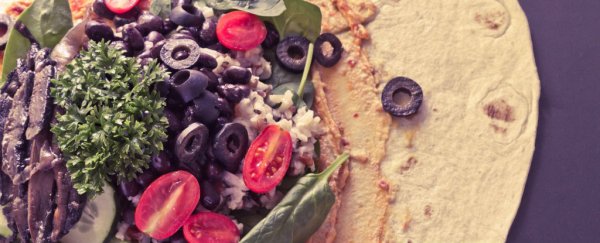Researchers have found evidence of a genetic variation in populations with a history of a plant-based diet. This variation, or allele, appears to have developed over hundreds of generations, allowing vegetarian populations to more efficiently process omega-3 and omega-6 fatty acids and convert them into compounds that aid brain development.
The team from Cornell University found another variation too: the Inuit populations of Greenland, whose diet is mainly based around seafood, didn't have the same DNA building blocks as similar communities that were largely vegetarian. While the vegetarian allele was found to have an insertion of 22 bases (DNA building blocks) within the gene, this insertion was deleted in the seafood allele, suggesting that over several generations, our bodies could be adapting to the types of food we're eating.
"It is possible that in the history of human evolution, when people migrated to different environments, sometimes they ate a plant-based diet and sometimes they ate a marine-based diet, and in different time periods these different alleles were adaptive," said one of the team, Kaixiong Ye.
The study is based on a sample of 234 primarily vegetarian Indians and 311 US participants. The vegetarian allele was found in 68 percent of the Indians and just 18 percent of the Americans.
The team also used data gathered from the 1000 Genome Project (covering several thousand individuals) and found that the same allele was present in 70 percent of South Asians, 53 percent of Africans, 29 percent of East Asians, and 17 percent of Europeans in the database.
 Molecular Biology And Evolution
Molecular Biology And Evolution
In each case, the genetic variation is more common in areas where vegetarian diets have traditionally been preferred.
"Northern Europeans have a long history of drinking milk and they absorbed enough end products from milk for long-chain fatty acid metabolism so they don't have to increase capacity to synthesise those fatty acids from precursors," said Ye. "One implication from our study is that we can use this genomic information to try to tailor our diet so it is matched to our genome, which is called personalised nutrition."
But there could be unwelcome side effects: while the allele helps vegetarians to more rapidly metabolise fatty acids inside the body, there's also an increased risk of the creation of inflammatory acids linked to heart disease and colon cancer, especially in combination with vegetable oils.
"Changes in the dietary omega-6 to omega-3 balance may contribute to the increase in chronic disease seen in some developing countries," one of the researchers, Tom Brenna, told The Telegraph. "The message for vegetarians is simple. Use vegetable oils that are low in omega-6 linoleic acid such as olive oil."
The findings have been published in the journal Molecular Biology and Evolution.
